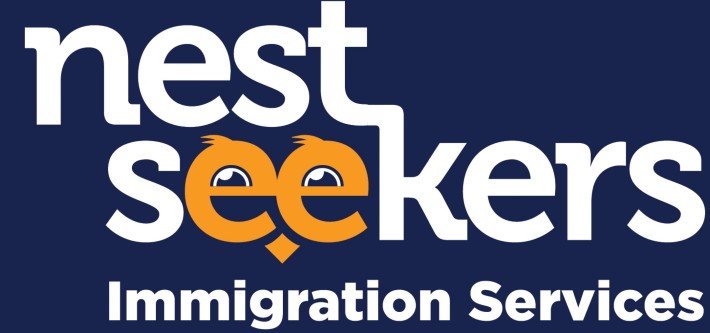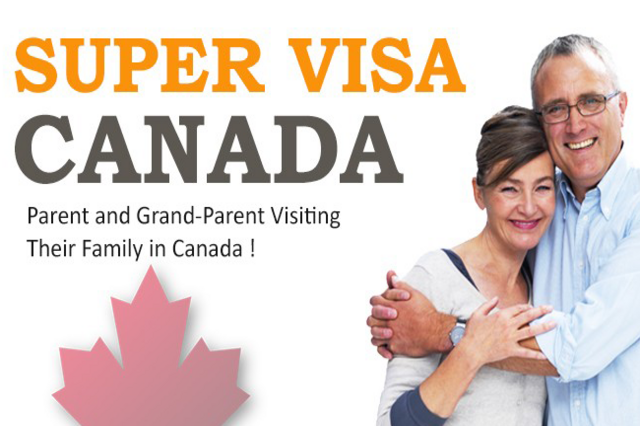Sponsorship
Any Canadian citizen or a permanent resident of Canada, age 18 or over, can sponsor his/her family members to become Canadian permanent residents. As permanent residents, they can live, study and work in Canada. However a sponsor is responsible for supporting his/her relatives financially when he or she arrives. There are only predefined relations whom one can sponsor.
These are as follows:-
- Spouse(Husband or wife as the case may be), common-law partner or conjugal partner.
- Dependent child one’s own or adopted but must be 21years or younger.
- Parents and Grandparents which include father, mother, grandfather or grandmother.
- Orphaned Relatives: brother, sister, nephew, niece, grandson or granddaughter, who are orphaned, under the age of 18, and not married or in a common-law relationship.
- Other relative: only Lonely Canadians who do not have any other family member can sponsor their relatives.
Definition of Relationships
- Spouse – Legally married husband or wife.
- Common-law partner – common-law partner, either of the opposite sex or same sex, if they have been living together in a conjugal relationship for at least one year in a continuous and uninterrupted 12-month period and have combined their affairs to set up a household.
- Conjugal partner – This category is for partners, either of the opposite sex or same sex under exceptional circumstances beyond their control that prevent them from living together and therefore they cannot qualify as common-law partners or spouses.
Sponsorship Obligations
All sponsors must sign an undertaking to provide the sponsored person with the basic requirements from the day they enter Canada until the term of the undertaking is over. This undertaking is a contract between the sponsor(s) and IRCC that the sponsor will be under obligation to repay the government for any social assistance payments made to the sponsored person for the entire period of the contract, even if there are changes of circumstances such as marital breakdown, separation, divorce, or a financial change in circumstances.
- In the case of a spouse, common-law partner or conjugal partner this obligation is for the period of three years
- In the case of a child under the age of 19 years, of the sponsor or the spouse, this obligation commences on the day that the child becomes a permanent resident of Canada for the period of 10 years or until the child reaches the age of 25 years, whichever comes first.
- In the case of a dependent child over the age of 19 years, this obligation is for a period of three years.
- In the case of parents and grandparents, the sponsorship obligation extends for a period of 20 years from the date in which the member becomes permanent resident. For all other family members, the obligation is for a duration of 10 years. The Supreme Court of Canada, in its 2011 judgment of Attorney-General of Canada vs. Mavi, the court decided that while a sponsor’s obligation to reimburse the state for benefits collected by his or her relatives can be deferred in some circumstances, but in no case it can be wiped off the books entirely.
Categories of Sponsorship
Spouse Sponsorship:
All applications for both Inland and Outland Sponsorship are submitted to CPC-M in Mississauga. Once an application is deemed to be complete with all required forms and documents, and the sponsor is eligible, the application is forwarded for further processing. Incomplete applications are returned 3 months later.
There are two types of applications for Spouse and Common-Law Sponsorship
- Outland Spousal Sponsorship: The application is processed through the visa office in the sponsored spouse’s country of citizenship or where they legally reside (if outside Canada). If Spouse/Common-law partner live together in Canada, they can still apply under this category. Applying under this category will make one eligible to Appeal a refusal. One will not have rights to appeal for an Inland Spousal Application.
- Inland Spousal Sponsorship (Spouse or Common-Law in-Canada category): The application is processed in Canada and both MUST live together. The person being sponsored MUST have temporary status in Canada as a worker, student, or visitor. The person being sponsored may be eligible for an Open Work Permit. One can sponsor the following persons and their dependent children (21 or younger) for Canadian Permanent Residence.
To be eligible to be a Sponsor
- You must be a Canadian Citizen, or Permanent Resident (living in Canada)
- You must be 18 years of age or older
- You cannot be in prison, bankrupt, under a removal order (if a permanent resident) or charged with a serious offence
- You, yourself, cannot have been sponsored to Canada as a spouse within the
last 5 years.
Parents & Grandparents Sponsorship:
One can sponsor one’s own parents and grandparents, related by blood or adoption. In case of divorce, one will need to submit separate applications if he/she sponsors divorced parents and grandparents. If divorced parents or grandparents have a current spouse, common-law partner or a conjugal partner, these people become dependants on the application and can immigrate to Canada with one’s parents and grandparents, if approved. In the application, one can include his/her brothers and sisters, or half brothers and sisters, or step-brothers and step- sisters only if they qualify as dependent children.
To be eligible to be a Sponsor
- One must be a Canadian Citizen or Permanent Resident
- He/she must be 18 years of age or older
- He/she must meet or exceed the minimum necessary income (MNI requirement for Family Sponsorship
- He/she must sign an undertaking agreement that commits him/her to provide financial support for sponsored parents or grandparents and repay any provincial social assistance benefits paid to the sponsored family members for 20 years
If the sponsor lives in Quebec, an additional undertaking agreement must be signed
Sponsors must provide three Notices of Assessment from the CRA to IRCC to prove that they meet the minimum necessary income requirement.
If they do not qualify for Parental PR sponsorship because they do not meet the MNI for the 3 year period, they can apply for a Super Visa as the income required is only for 1 year and it is about 30% lower.
Dependent Child Sponsorship :
One can sponsor a dependent child or a child one plan to adopt for Permanent Residency in Canada. Currently, the eligible age for a dependent is 18 or younger, however the government of Canada have been considering to increase the age to 21 in the near future.
Under this category one can sponsor if he/she is:
- At least 18 years of age
- A Canadian permanent resident living in Canada or a Canadian citizen , Not in prison, bankrupt, under a removal order (if a permanent resident) or charged with a serious offence.
Requirements for the nature of the relationship
The child should be the biological child of the parent and has not been adopted by
another person
OR
The child is adopted by the parent
Other Relative Family Sponsorship :
One can sponsor other relatives besides their immediate family members under certain circumstances .
One can sponsor: One’s brother, sister, nephew, niece, grandson or granddaughter, who are orphaned, under the age of 18, and not married or in a common law relationship another relative if one does not have a spouse, common-law partner, or conjugal partner, or one of the following living relatives below (excluding the person you wish to sponsor) which you could sponsor instead:
- a child
- a mother or father
- brother or sister
- uncle or aunt
- nephew or niece
One can sponsor if he/ she is :
- At least 18 years of age
- A Canadian permanent resident living in Canada or a Canadian citizen
- Not in prison, bankrupt, under a removal order (if a permanent resident) or charged with a serious offence
Super Visa
Super Visa program is designed to allow family members to come to Canada as long-term visitors on a multiple entry visa that may last up to 10 years. A Super Visa is valid for 2 years before it has to be renewed.This is an ideal option for Canadian Citizens and Canadian Permanent Residents who are still to sponsor their parents for PR, or who currently do not qualify for Parental PR sponsorship.
The financial requirement for a Super Visa is considerably less strict than PR sponsorship- the minimum necessary income (MNI) is 30% lower than that of PR sponsorship, and only 1 year of gross income must exceed the MNI limit vs 3 years with PR Sponsorship
To be eligible for a Super Visa:
Following are requirements for sponsoring a super visa:-
- The sponsor must meet the minimum necessary income as defined from time to time (for Super Visa) requirement, which must be supported by most recent Canadian tax return (Notice of assessment) where line 150 meets or exceeds this amount.
- They must purchase Canadian healthcare insurance of $100,000 coverage for at least 1 year- (approximately $2,000 – $3,000 CAD per year per head).
- Medical examination of the sponsored person from authorized doctor is a must to be eligible under this category
A written commitment from the sponsor is also needed regarding providing financial support from the Sponsor (child or grandchild) to the sponsored person/persons. Further depending on the citizenship of the sponsored person, a TRV (Temporary Resident Visa) may also be required for non visa-exempt countries. If a TRV is required, please be informed that there is a well established screening process and there is a high rate of refusal when individuals apply on their own. To find out if a TRV is required, refer to the list of TRV required countries. In addition, refer to the common reasons for refusal of
a TRV visa.
Minimum Necessary Income to sponsor for Super Visa in 2021:
Family Members MNI 2021
| Size of Family Unit | Minimum necessary gross income |
|---|---|
| 1 person (your child or grandchild) | $25,921 |
| 2 persons | $32,270 |
| 3 persons | $39,672 |
| 4 persons | $48,167 |
| 5 persons | $54,630 |
| 6 persons | $61,613 |
| 7 persons | $68,598 |
| More than 7 persons, for each additional person, add | $6,985 |






